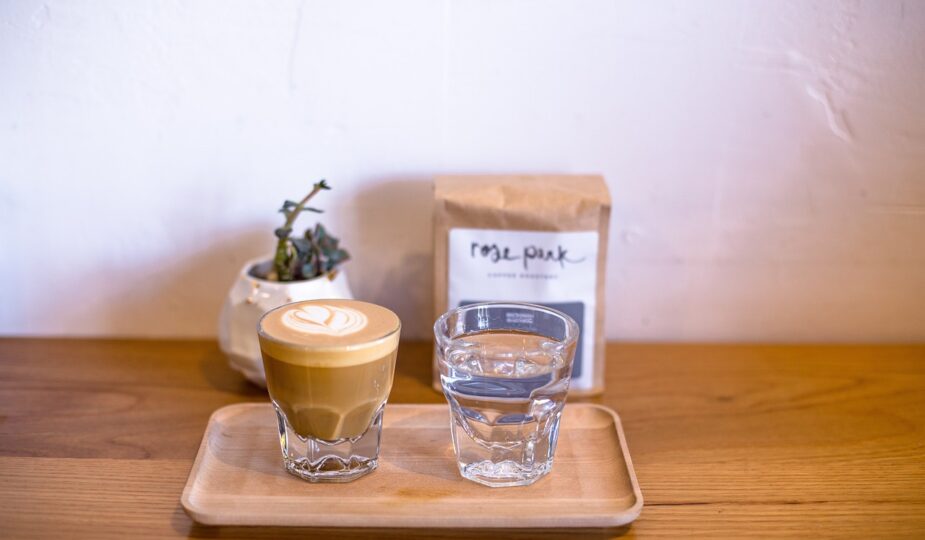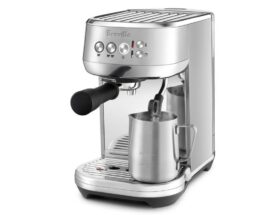
Why Does My Coffee Taste Watery? Fixes Inside
Welcome to our coffee blog! If you’re a coffee lover like us, there’s nothing more disappointing than taking the first sip of your morning brew and finding it watery and lackluster. You were expecting that rich, bold, and robust flavor to jolt you awake, but instead, you’re left with a weak and insipid cup of coffee that just doesn’t hit the spot. But fear not, fellow coffee connoisseur, because we’re here to uncover the reasons behind this unfortunate phenomenon and offer you some fixes to turn your watery coffee into a truly satisfying and indulgent experience. So grab your favorite mug, settle in, and let’s dive deep into the world of coffee flavor!
Topic Overview: In this blog post, we will delve into the frustrating issue of watery-tasting coffee and explore various fixes to overcome this problem. We will discuss the possible reasons why your coffee may taste diluted and explore expert tips to enhance the richness and flavor of your brew. Whether you’re a coffee connoisseur or simply enjoy a good cup of joe, this blog post will equip you with the knowledge and strategies to elevate your coffee experience. So get ready to discover the secrets to an exquisite, non-watery coffee!
Table of Contents
Background Information
For many coffee lovers, there’s nothing better than a perfectly brewed cup of joe. The rich aroma and bold flavor can be a delightful way to start your day or enjoy a break in the afternoon. However, there may come a time when your coffee doesn’t taste quite right, and one common complaint is that it tastes watery.
When your coffee tastes watery, it can be quite disappointing. It lacks the robust flavor and body that you expect, leaving you unsatisfied and craving a stronger, bolder cup. But why does coffee sometimes taste watery? To find a fix, we must first understand the factors that contribute to this undesirable taste and texture.
A variety of factors can lead to watery coffee, including the brewing method, coffee beans, grind size, water-to-coffee ratio, and even the water quality. Each of these elements plays a significant role in the overall taste and strength of your coffee. By understanding how these factors interact, you can make adjustments to achieve the perfect cup of coffee every time.
Why Does My Coffee Taste Watery? Fixes Inside
1. Inadequate coffee-to-water ratio
One common reason your coffee might taste watery is because you’re not using enough coffee grounds in proportion to the water. Achieving the perfect ratio is crucial for a robust and flavorful cup of coffee. Try using 1 to 2 tablespoons of coffee grounds for every 6 ounces of water. Adjust the amount to your preference, but be careful not to overdo it, as this can result in an overly strong brew.
2. Poor-quality coffee beans
The quality of your coffee beans plays a significant role in the taste of your brewed coffee. If you find your coffee consistently tasting weak or watery, it could be a sign that you’re using low-quality beans. Invest in high-quality coffee beans that are freshly roasted to ensure a richer and more flavorful brew. Experiment with different brands and types of coffee until you find the perfect one for your taste buds.
3. Improper brewing time
The brewing time can greatly impact the strength and flavor of your coffee. If your coffee tastes watery, you may be brewing it for too short a time. Extend the brewing time by a few minutes and see if the flavors improve. However, be careful not to over-extract your coffee, as this can lead to bitterness. Finding the right balance is key to a satisfying cup of coffee.
4. Insufficient extraction
Insufficient extraction occurs when the water doesn’t extract enough flavors from the coffee grounds. This can result in a weak and watery brew. To fix this, try adjusting your brewing method or equipment. Consider using a finer grind size, hotter water temperature, or extending the contact time between the water and coffee. Experiment with different extraction techniques to enhance the flavors and strength of your coffee.
5. Water quality
The quality of the water used for brewing coffee can significantly affect its taste. If your coffee tastes watery, it could be due to the use of poor-quality or heavily filtered water. Use fresh, clean water that is neither too hard nor too soft. Mineral content in the water can contribute to the overall flavor of your coffee, so using filtered water or spring water might improve the taste.
6. Brewing method
The brewing method you choose can also impact the strength and flavor of your coffee. Certain methods, such as pour-over or French press, allow for better control over the brewing process and can result in a more robust cup of coffee. If your coffee consistently tastes watery, experiment with different brewing methods to find the one that suits your taste preferences.
7. Storage and freshness
Stale or improperly stored coffee can taste weak and watery. Coffee should be stored in an airtight container away from light, heat, and moisture to maintain its freshness. Be sure to purchase coffee in small quantities and consume it within a few weeks of roasting. Grinding your coffee beans just before brewing can also help preserve freshness and enhance the flavor.
By addressing these possible reasons and making the necessary adjustments, you can transform your watery coffee into a delightful and satisfying brew. Experiment, be patient, and enjoy the process of finding the perfect cup of coffee that suits your taste buds.
Tips and Recommendations
- Use the right coffee-to-water ratio: To avoid a watery taste, make sure you’re using the correct amount of coffee grounds per cup of water. The general rule is 1 to 2 tablespoons of coffee for every 6 ounces of water.
- Grind your beans properly: The grind size of your coffee beans can greatly impact the taste. If your coffee tastes watery, try adjusting the grind size to a finer setting. This allows for greater extraction and a bolder flavor.
- Extend the brew time: If your coffee is consistently watery, you may be brewing it too quickly. Try extending the brewing time by increasing the steeping time or adjusting the flow rate of your coffee maker. This allows for better extraction and a stronger flavor profile.
- Experiment with brewing methods: Different brewing methods can yield varying strengths and flavors. If your coffee tastes consistently watery, try exploring different brewing techniques such as French press, pour-over, or espresso. Each method offers a unique brewing process that may suit your taste preferences better.
- Invest in a better-quality coffee: Sometimes, the issue lies with the quality of the coffee itself. Lower-grade or stale coffee beans can result in a watery taste. Consider investing in high-quality, freshly roasted beans for a more flavorful and satisfying cup of coffee.
- Preheat your equipment: Preheating your coffee equipment, such as the coffee maker or French press, ensures that the water maintains its temperature during the brewing process. This helps to extract more flavor from the coffee grounds and prevent a watery taste.
- Check your water temperature: Brewing coffee with water that is too cold can result in under-extraction and a weak, watery taste. Make sure your water is heated to the proper temperature, around 195-205°F (90-96°C), to ensure optimal flavor extraction.
- Consider using filtered water: The quality of your water can affect the taste of your coffee. If your tap water has a high mineral content or an unpleasant taste, using a water filter can help improve the flavor and reduce any unwanted flavors that contribute to a watery taste.
Frequently Asked Questions
1. Why does my coffee taste watery?
If your coffee tastes watery, it could be due to a few different factors:
- Using too much water: If you’re not following the recommended coffee-to-water ratio, you may end up with a weaker, watery taste.
- Grinding coffee too coarse: The grind size plays a crucial role in extracting flavor from the coffee beans. If the grind is too coarse, the water may not be able to extract enough flavor, resulting in a watery taste.
- Brewing for too short a time: Steeping or brewing your coffee for insufficient time can also lead to a weak and watery flavor.
2. How can I fix the watery taste in my coffee?
Here are a few fixes to enhance the flavor and body of your coffee:
- Adjust the coffee-to-water ratio: Experiment with increasing the amount of coffee grounds per cup of water until you find the ideal ratio that suits your taste.
- Grind your coffee finer: Try using a finer grind size to increase the surface area of the coffee particles, allowing for better extraction of flavor during brewing.
- Extend brewing time: Increase the brewing time by a few minutes to ensure proper extraction. This can help intensify the flavor and reduce the watery taste.
- Use a different brewing method: If you consistently face the problem of watery coffee, consider trying other brewing methods such as a French press or a Moka pot, which tend to produce bolder flavors.
- Invest in better-quality coffee beans: The quality of your coffee beans impacts the overall taste of your brew. Opt for freshly roasted beans from reputable sources for a more flavorful and satisfying coffee experience.
3. Are there any additional tips for enhancing the flavor of my coffee?
Absolutely! Here are some additional tips to elevate the taste of your coffee:
- Use filtered water: Using filtered water can help eliminate any potential off-flavors in your coffee and provide a cleaner taste.
- Preheat your coffee equipment: Preheating your coffee maker, French press, or brewing vessel can help maintain optimal brewing temperatures and enhance flavor extraction.
- Experiment with brewing temperature: Depending on the type of coffee you’re brewing, adjusting the water temperature slightly can impact the taste profile. Cooler water for lighter roasts and hotter water for darker roasts can bring out the best flavors.
- Store your coffee properly: To preserve freshness and flavor, store your coffee beans or grounds in an airtight container in a cool, dark place away from sunlight or excessive heat.
By following these suggestions and experimenting with different variables, you’ll be on your way to enjoying a flavorful and well-rounded cup of coffee without the watery taste!
Conclusion
In conclusion, if your coffee tastes watery, there are a few simple fixes you can try. First, make sure you are using the correct coffee-to-water ratio and brewing method for your taste preferences. Experiment with adjusting the amount of coffee grounds or the brewing time to achieve a stronger flavor. Additionally, check the quality and freshness of your coffee beans, as stale or low-quality beans can lead to a weak taste. Finally, consider upgrading your brewing equipment, such as using a French press or a pour-over method, to enhance the richness of your coffee.
Remember, the key to a flavorful cup of coffee is finding the perfect balance that suits your preferences. Don’t be afraid to try out different methods and techniques until you find your coffee nirvana.
Now it’s time to put these fixes into action and elevate your coffee game. Give these tips a try and see if it makes a difference in the taste of your brew. If you have any other suggestions or questions, feel free to share them in the comments below. Happy brewing!









